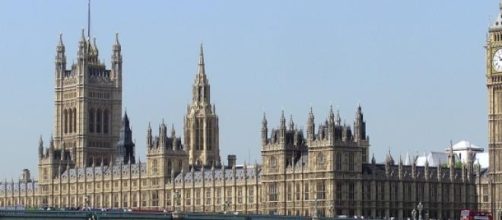Since 1992, Western politicians have worshipped a campaign slogan devised by the US Democratic Party: The Economy, Stupid. So why doesn't it woo voters any more? And what does this mean for the 2015 UK General Election?
We are living post-Credit Crunch. Recovering from the worst global economic disaster since forever. So you might think we'd be grateful for our politicians for fixing the economy. But we're not. And there's a reason why.
Economists claim the crash of 2007 was on par with the legendary Wall Street Crash of 1929. But for us everyday folk it wasn't.
Sure the heady years of a cheap place in the sun and spending like Beckham dried up, but mostly life carried on as before. The slump was relative. The poorest in British society had their benefits slashed and some turned to food banks. But the voting middle class majority kept a roof over their heads. These middle classes were tricked into treating their reduced income as a game. Budget supermarkets like Aldi and Lidl became very socially acceptable to be seen in. Even buying second hand clothes and homewares was made fun and rebranded as vintage. Millionaire television presenters assured viewers how personal and thoughtful a tatty used item could become with some glue and a bit of chintz.
Alongside this a new servant class was imported.
Educated (and many poorly educated) eastern Europeans flocked to the UK to do those terrible, terrible jobs that the poor could not afford to take and the middle classes wouldn't soil their hands with. Lithuanian baristas and Polish cleaners deluded the British public into believing that they still lived at an appropriate, elevated social status.
So while the majority of us were apparently enjoying our reduced status and income, those at the top (the geniuses who caused the crash) happily accumulated wealth and power to grow. Social mobility in the UK came to a virtual stand still. Look to your parents, whatever they have is most you are ever likely to have. So if you grew up in local authority housing, you're likely to stay there.
If your parents own their own home, they are likely to help you with a deposit to get on to the housing ladder. If your parents are super wealthy, then opportunities open up to you.
Here comes the punchline: We've accepted our lot in modern British society. Sure we'd all like a pay rise, but generally we're doing OK. The NHS keeps patching us up. We have our shiny TV sets, iPads and smartphones to amuse us. If the odds are so stacked against us that it's not even worth trying to aspire to more, then why bother? And we secretly like it. Social mobility and aspiration depend on the next rung being tantalisingly just out of reach. We can't even see the ladder it's so distant! But if this is as bad the economy can get then most of us can happily survive here.
And survive well in a luxury most people in the world dream of. At the very worst most of us - significantly those who vote - can get by. Which causes a problem for our politicians.
We have a generation of professional politicians who have been trained for the job. Many are graduates of Philosophy, Politics and Economics (PPE) degrees at top universities. This includes David Cameron, Ed Miliband and Ed Balls. The course - and many like it - is not a Dummies Guide to Running UK Plc, but it does embed processes into our future leaders. If A happens... the response is B. This means that they are a generation out of date with their logic. The only real power a modern government has is over the economy, and even this is being eroded by the multinationals.
But none of the main UK political parties differs substantially on running the economy. Both Labour and Conservatives agree on cutting the deficit, it's just the manner in which they intend to do it that divides them. And the majority of the electorate hasn't got the foggiest which mumbo-jumbo solution is the best one.
Because the electorate has no idea what's going on, they have disengaged. So our elected representatives talk to the only people who like their financial chit-chat: bankers and business leaders. All these powerful parties convince themselves that by making more money themselves, it will trickle down to the poorest in society. Outside of this cartel, only a fool would agree.
We've become ungovernable.
A nation of individuals. 60 million loosely connected opinions with the social technology to give us the belief that we are each at the centre of our own little universe. Politicians may argue over the economy but we have no bigger ask of our politicians than to leave us be. This is why we are increasingly turning to the smaller parties. To the voters of 2015 it's a case of if A happens then... the response is U for UKIP, S for the SNP or G for Greens. We gleefully erode the power of our politicians, but we won't like the unelected big business elite that replaces them. It's actually Us, Stupid.

